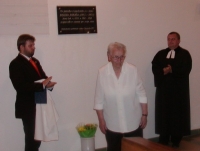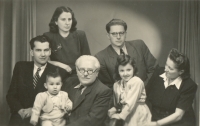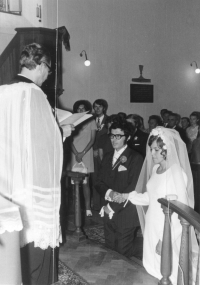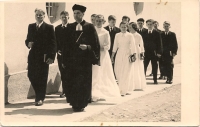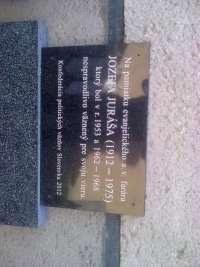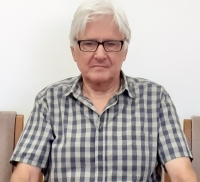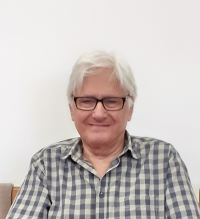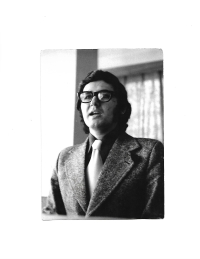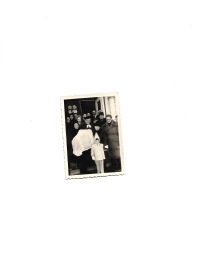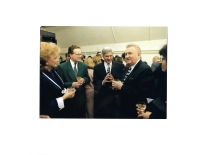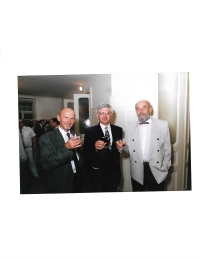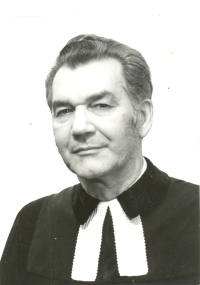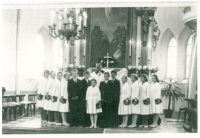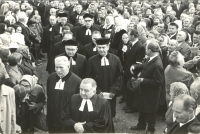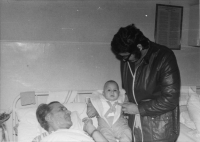I was the Party kiddo
Ján Juráš was born on February 14, 1947 in Liptovská Porúbka in the family of the evangelical priest Jozef Juráš and Darina, née Šenšelová, as the second child. He had an older sister, Ivica, and a younger sister, Danica. His father worked during the Slovak National Uprising (SNP) as the secretary of the Revolutionary National Committee, however, with the rise of communism to power, his persecution began. In 1953, he was in cruel pretrial detention for seven months, from which he suffered permanent health consequences. In 1962, he was sentenced to 13 years for treason, but was released after six years. He served his sentence in Valdice, where he established a deep friendship with Cardinal Korec. As a child, Ján attended several elementary schools and, like his sisters, had problems getting accepted to any secondary school. Finally, he got to the Secondary General Education School in Bratislava due to the intervention of the Prime Minister at the time, Jozef Lenárt, who was a native of Porúbka and the confirmand of his grandfather, senior Ľudovít Šenšel. After graduating in 1966, again due to intervention „from the up“, he was allowed to enter the University of Agriculture in Nitra. With the onset of normalization, he had to interrupt his studies and completed it remotely in 1973, when he was already working as a specialist in the Institute of the Scientific Management System. In 1981, he joined the Agricultural Project Institute as a technologist and after a „gentle coup“ was elected its director. Later he worked as a partner in s.r.o. Agrocons Projekt, then as a self-employed person in the AP Projekt Agency. In 2005, he founded the civil association Ars ante portas, where he is still the chairman. The subject of the association‘s activity is the organization of cultural, spiritual and charitable events. He retired in 2009 and lives with his family in Bratislava.
